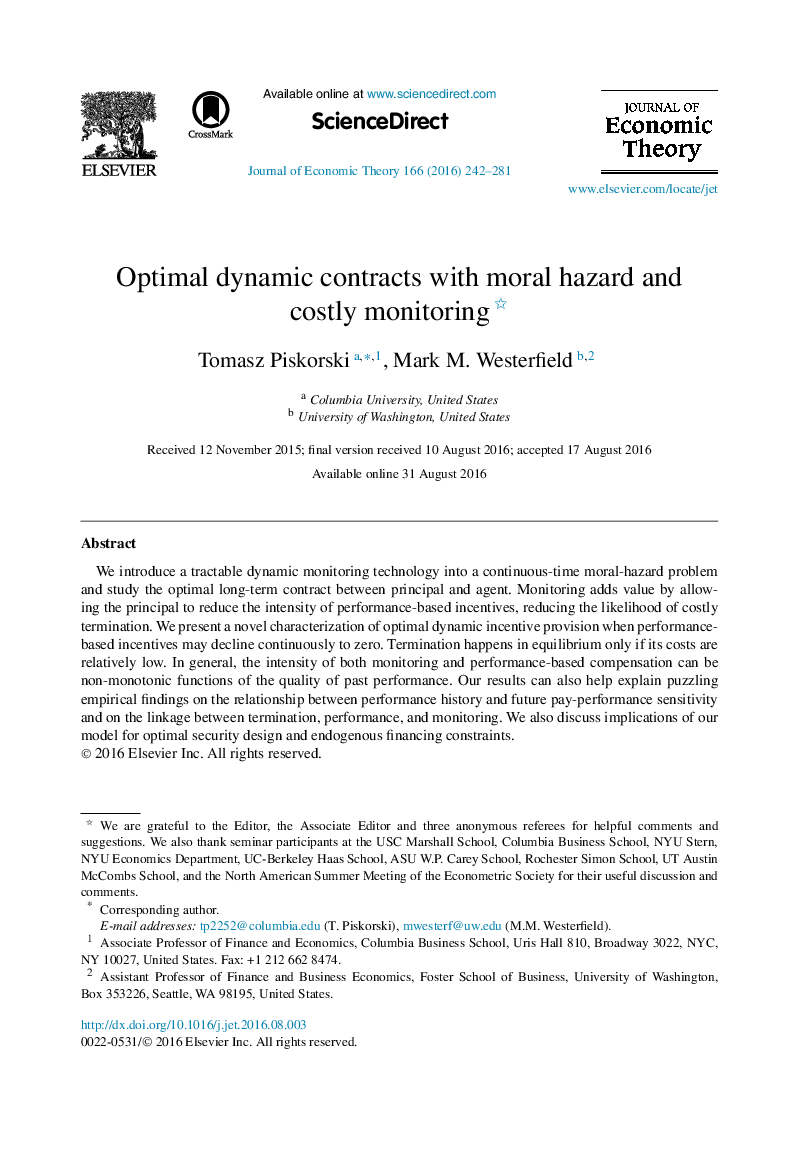| Article ID | Journal | Published Year | Pages | File Type |
|---|---|---|---|---|
| 7359374 | Journal of Economic Theory | 2016 | 40 Pages |
Abstract
We introduce a tractable dynamic monitoring technology into a continuous-time moral-hazard problem and study the optimal long-term contract between principal and agent. Monitoring adds value by allowing the principal to reduce the intensity of performance-based incentives, reducing the likelihood of costly termination. We present a novel characterization of optimal dynamic incentive provision when performance-based incentives may decline continuously to zero. Termination happens in equilibrium only if its costs are relatively low. In general, the intensity of both monitoring and performance-based compensation can be non-monotonic functions of the quality of past performance. Our results can also help explain puzzling empirical findings on the relationship between performance history and future pay-performance sensitivity and on the linkage between termination, performance, and monitoring. We also discuss implications of our model for optimal security design and endogenous financing constraints.
Related Topics
Social Sciences and Humanities
Economics, Econometrics and Finance
Economics and Econometrics
Authors
Tomasz Piskorski, Mark M. Westerfield,
